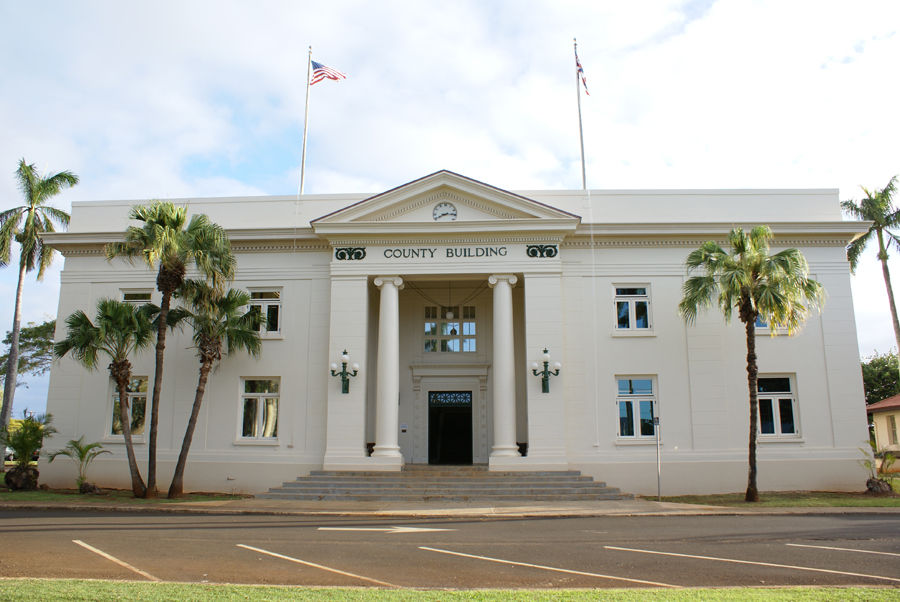LIHUE — The Kauai County Council’s effort on Wednesday to regulate homestay and bed-and-breakfast operations islandwide was met with resistance. Those pushing for tougher regulations say it’s a first step in closing loopholes in current laws and curtailing the proliferation of commercial uses
LIHUE — The Kauai County Council’s effort on Wednesday to regulate homestay and bed-and-breakfast operations islandwide was met with resistance.
Those pushing for tougher regulations say it’s a first step in closing loopholes in current laws and curtailing the proliferation of commercial uses in residential areas.
But some homestay operators say the proposed changes are overly restrictive and will make it more difficult for them to obtain permits for their businesses.
And finding an answer on a touchy topic that has required some operators to shut down might not be easy to come by.
“It’s going to be a long process because I don’t see an easy solution in the near future,” Council Vice Chair Ross Kagawa said.
A set of recommendations approved last week by the Planning Commission and outlined in Bill 2587 defines homestays as an “owner-occupant dwelling in which overnight accommodations are provided to transient guests within the same dwelling unit in which the owner resides or in a guest house and the primary residential structures used for the homestay operation is the owner’s primary residence.”
The qualified operators, under that same definition, must also have a homeowner’s real property tax exemption for the homestay site.
The goal of the proposal is to adopt a clear and specific standard and review parameters under which homestay applications can be processed.
The proposal follows a spate of cease-and-desist orders that were sent to less than 100 operators of transient vacation rentals, bed and breakfasts and homestays who did not have the proper county permits to operate legally.
Kilauea resident Nicki Pignoli, who has operated a bed and breakfast out of her home for the past 14 years, said the amount of permit fees being charged to cited operators to bring their operations into compliance should be used to hire more staff so that more than 10 homestay applications can be reviewed each year.
Meanwhile, she said, there should be a moratorium on issuing cease-and-desist notices to homestay and bed and breakfast operators who have been paying their applicable general excise and transient accommodations taxes.
“That, I think, is really imperative in terms of keeping us alive while we’re going through this process,” Pignoli said.
County planning officials previously said a total of 320 short-term accommodation operators were found to not have the proper permits based upon real property tax information.
But under the proposal, a maximum of 10 complete homestay operation applications would be reviewed by the Planning Commission each calendar year after they have been reviewed by the Planning Department.
”Please stay out of our homes and off of our properties,” Lihue Realtor Jeanne Childs wrote in an email to Kauai County Councilmembers. “This county is so very overbearing with all your restrictions and noses stuck in places you should never be. You have no business telling me who to have in my home, where I live.”
Councilman Mason Chock Sr. said that something needs to be done, but finding a balance is key.
“What I didn’t hear was a lot of the abuse that has brought us to this point, and I think that’s really where the sadness comes into play because we wouldn’t be here right now having to deal with this, if people were more responsible and considerate of their neighbors and the impacts that they have on their neighborhoods,” Chock said.
F. Lee Morey, who sits on the Kauai Board of Realtors government affairs committee, said the proposed law must be re-examined and broadened to address the possible impacts that Airbnb and other lodging rental websites may have on residential communities and the availability of affordable housing.
“I, personally, do believe you need to stop the cease and desist orders, erase that for everyone and cooperate with the owner-occupants of these homestays and do something productive for the county — something that will get the county more tax money or just make it a better home business instead of trying to just cut everybody off at the knee who needs the income,” Morey said.
A public hearing on Bill 2587 will be held on May 19 and taken up by the County Council’s Planning Committee during their May 27 meeting.
Written testimony can be sent to: counciltestimony@kauai.gov.


